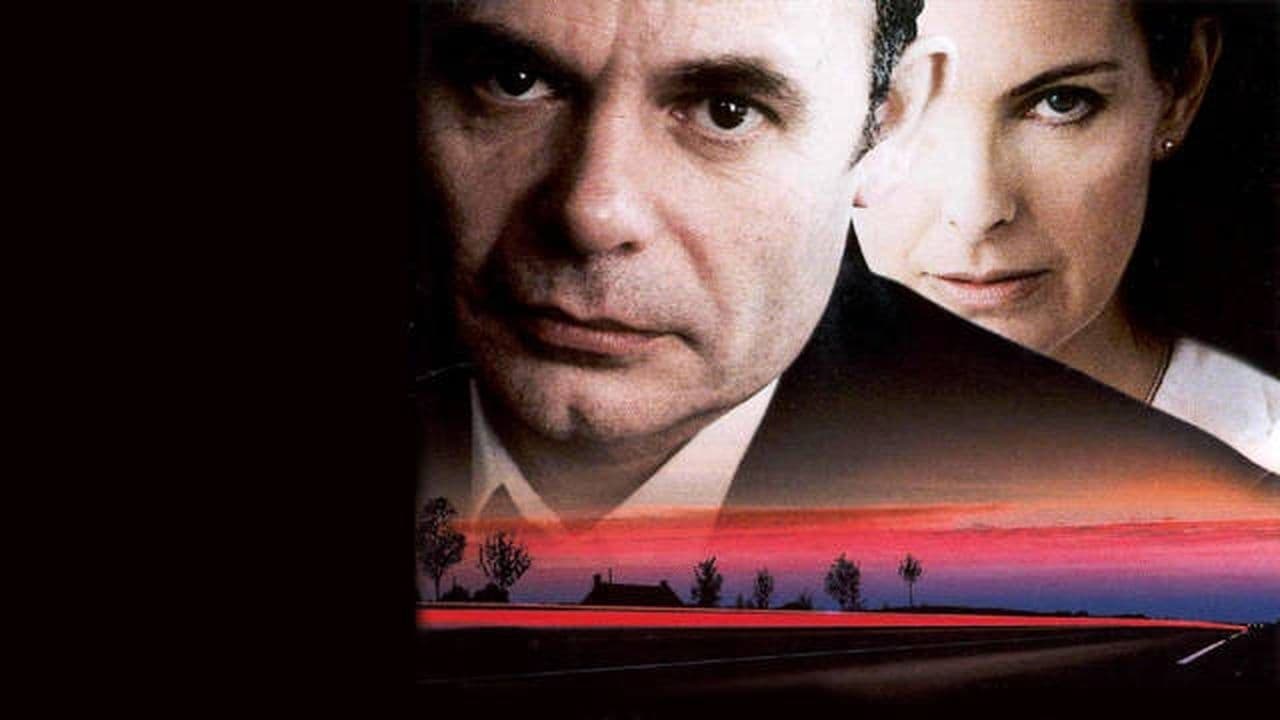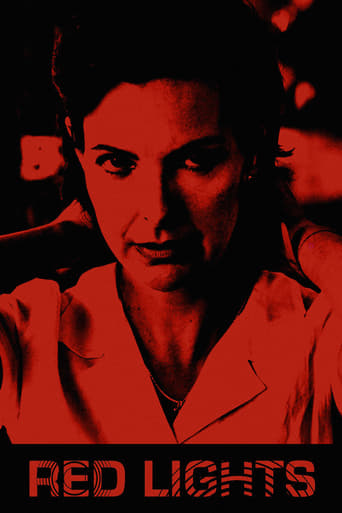

Self-important, over-dramatic, uninspired.
... View MoreA Disappointing Continuation
... View MoreIt isn't all that great, actually. Really cheesy and very predicable of how certain scenes are gonna turn play out. However, I guess that's the charm of it all, because I would consider this one of my guilty pleasures.
... View MoreBlending excellent reporting and strong storytelling, this is a disturbing film truly stranger than fiction
... View MoreThe first few seconds of 'Feux Rouges' show Antoine - a mid-age Parisian insurance agent - writing a loving mail to his wife on the verge of a family vacation. The last few seconds of the movie show the couple exchanging loving smiles while driving to the South where they would pick the children from a camp to continue together the vacation. Everything goes wrong in the in-between.'Feux Rouges' starts as a relationship drama and turns into a thriller and a wrong-turn movie. It is inspired by a novel of the Georges Simenon, and as many of Simenon's novels the characters are far from being great communicators. The lack of communication, the routine and maybe the differences in social positions make of Antoine an unhappy husband who is ready to spoil the start of the vacations by heavy drinking while on road. Much of the movie happens on the road, and the gradual tension building picking with the disappearance of the wife Helen strikes a cord of uneasiness and even claustrophobia - great achievement for a film filmed on highways and roads with the sky almost permanently on view. As in many of Simenon's novels there is a moralistic twist, and justice is made even if it is completely the result of hazard and not of the will of men. And there is a huge price to pay for this justice, which we only can guess as it happens out of the screen and story time.Director Cedric Kahn has learned a few lessons in thrillers from the great masters, and fist of all from Hitchcock. Antoine is wonderfully played by Jean-Pierre Darroussin as the type of character that we know from the very first moment that he will get into trouble and he indeed does all to confirm this, but it is the character of Helene played by Carole Bouquet that he relates to all the time and who is his focal point of frustration, worry and love.The simplicity of the story telling, the careful gradation of tension towards horror, the low key ending which does not solve the conflict, but just postpones it beyond the duration of the screening make of this film a worth watching piece of cinema.
... View MoreWe are all supposed to be shaking in our seats. After all, the director of this contrived and artificial piece of nonsense is confident that he has overwhelmed us with shock and horror. The problem is that nothing in the plot is remotely credible. Indeed, it is frankly impossible. Carole Bouquet and her husband are driving south from Paris and a convict has escaped from a prison. Husband and wife split up after a quarrel. One takes the train and the other drives. We are expected to believe that out of the sixty million people in France, the escaped convict on the same evening encounters only these two, separately! He rapes the wife on the train and tries to murder the husband in his car. He does these two things in separate places more or less at the same time. Surely this is carrying surrealism too far. Are we not entitled to the respect of some semblance of rationality in the plot of a film which is supposed to be a 'suspense' film? But it gets worse. The couple are supposed to be driving south to pick up their two children, aged 8 and 10, from summer camp. Despite this, they quarrel over nothing and the wife abandons the car. As for the husband, he has consumed several bottles of whiskey and numerous beers, is totally drunk, and is driving suicidally. What a way to pick up the kids! What is more astonishing is that we are meant to feel sympathy for the idiotic and irresponsible husband because, poor fellow, the convict whom he first approaches and then provokes turns on him. What a shame the convict didn't kill the useless twerp. What advanced state of decadence have the French media class entered now, when in film after film we are all expected to shed crocodile tears for despicable and loathsome characters? And this film was nominated for a prize at the Berlin Festival! What is going on? Has everybody gone completely raving mad? This film is not worth watching, and yet there are plenty of people around praising it. The characters are inhuman, and the plot is absurd. Somehow, somewhere, something very deep is going wrong with filmmakers in France, and their critics and festival juries. I called attention to this in my review of 'L'Enfant'. When the wholesome and delightful film 'Amelie' came out a few years ago, a chorus of French critics and media folk howled in protest about it and heaped abuse upon it in the press. There is a sickness, a deeply serious and growing sickness, amongst certain levels of the French media class. All sense of morality has been thrown overboard and a howling intolerance of anything wholesome arises from a baying pack of corrupt and arrogant media insiders. This is all very worrying for those like myself who love French culture and wish it to continue in some form which can continue to command some respect.
... View More2004 was a good year for foreign films with Feux rouges and Mar adentro and Pedro Almodóvar's La Mala educación. Feux rouges is a great thriller in the style of Hitchcock.Antoine (Jean-Pierre Darroussin) and Hélène (Carole Bouquet) play husband an wife who bicker with each other on a road trip to pick up their children from Summer camp. I bet that many, if not most, husbands may see a lot of themselves in Antoine; and many wives will see themselves in Hélène. It makes you really think about marriage.They split up, with one taking the train, and both come in contact with an escaped convict (Vincent Deniard, in his first film). What happens is the second best part of this film and what makes it a Hitchcock thriller.Not to be missed.
... View MoreOpens with brilliantly shot sequences and if it then moves into more traditional French bourgeoisie territory it does it with passion and intelligence. As the narrative unfolds, involving a car drive that begins tetchy and proceeds to become really scary, we identify with the main protagonists and are as concerned as the male lead when the other disappears. A lot of the first part of the film is shot through the front screen of the car but this is so well done with the accompanying dialogue, developing tragedy and suspense we are almost on the edge of our seats. We lurch into nightmare territory and things become almost unbearable as we struggle to assure ourselves as to what is really happening. I was not as interested as the director in the relationship between the high flying wife and the husband who sees himself as her poodle and presumably this is why I found the ending simplistic and verging on the insulting, but never mind a good ride up to then!
... View More